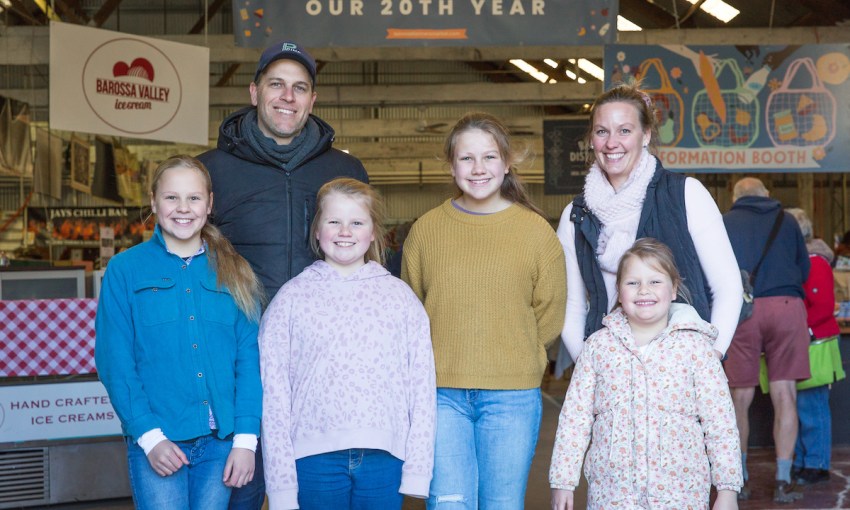In the two years since a cyclone hit their farmhouse in Western Australia, the Royce family has started afresh in the Mid North’s Hallelujah Hills where they now farm pasture-raised chooks that are in demand with top South Australian chefs.
Mid North chook farmers strike a chord with top SA chefs
It’s barely 9.30am on a bitterly cold morning at the Barossa Farmers Market and the Abelsway Farm stall has already sold out of most of their pasture-raised chickens, sausages and schnitzels.
Behind the counter, rugged up in beanies and scarves, are business owners Hannah and John Royce who are assisted by their four daughters, busily serving a steady stream of regular customers.
The family rises early every Saturday to drive the one hour from their farm in Hallelujah Hills – just north of Robertstown in the Mid North – to the Barossa Farmers Market at Angaston.
“It really is a family affair,” says Hannah.
“Our eldest Joanna will be 13 this year and she will start stepping up to help with market sales and continue to build relationships with customers.
“It’s a great thing for the family. Yes, farming is hard work, but it teaches you a lot of grit.”
Hannah and John have a passion for the ethical treatment of their broiler chickens, which are raised on pasture with 24-hour access to fresh ground, air, food and water.
Their daughters Louisa, Philippa, Joanna and Nicola help not only with the market stall but have various weekend jobs on the farm.
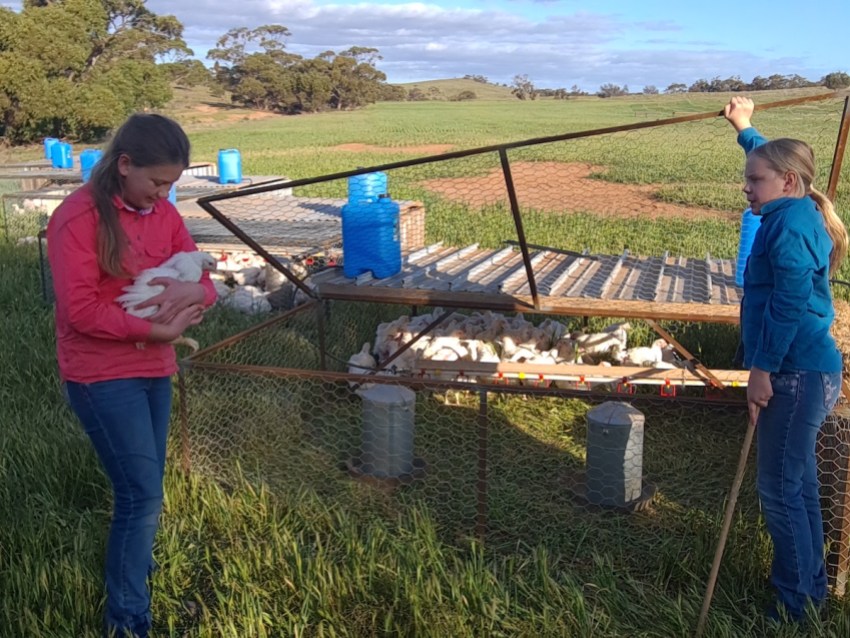
Unlike “free-range” chickens which are often raised in sheds with some outdoor access, Abelsway Farm’s chicken pens sit on fresh pasture and are rotated onto new ground every day, no matter the weather.
Even on Christmas Day, the Royce family must move their chicken pens.
“There are few commercial farmers that we’re aware of who are farming (meat birds) this way. There aren’t a lot of us,” says Hannah.
“If chickens are pasture-raised, then you know they are out on fresh ground, typically all the time. They’re digging around in the dirt and eating bugs with access to the sun and fresh pasture. I wouldn’t want it any other way.
“They’re sheltered from the rain and wind, and protected from predators, but they have access to come out into the full sun. These chickens love it. They will go to find the sun and when you put them onto new pasture each day, they will run to the fresh grass – they know it’s coming.”
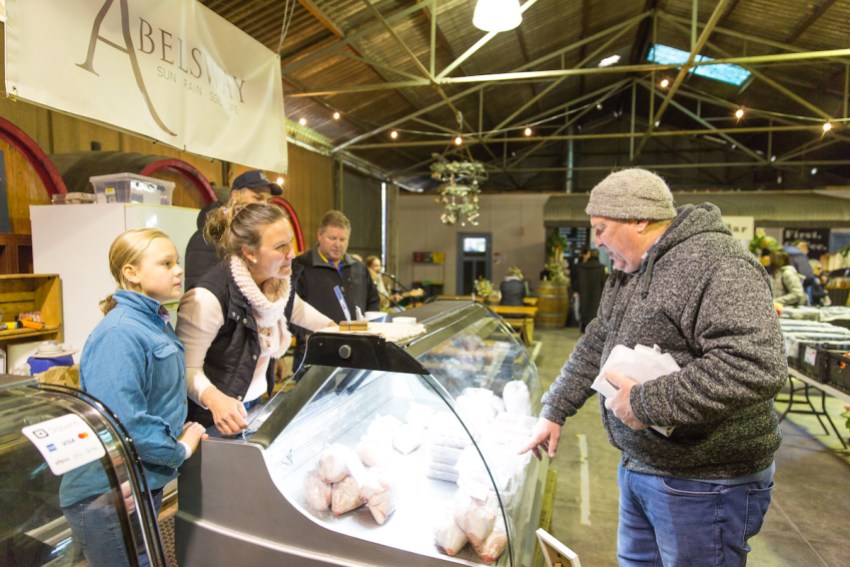
John is a fifth-generation farmer from Western Australia’s Chapman Valley – near Geraldton. John and Hannah transformed his family’s traditional broadacre farm into a regenerative, certified organic farm growing multiple species of crops in the same paddocks.
But when Cyclone Seroja tore through the region in 2021, it ripped away the back end of their farmhouse, lifted ceilings and destroyed their verandah, while destroying the farms’ sheds. Thankfully, they didn’t lose any livestock.
“It (the cyclone) made a mess, and made things a little tricky, but we were able to work around it and continue doing what we needed to do,” says Hannah.
“There were various factors that complicated our situation and, in the end, circumstances pointed us in this direction which was the best thing for our family to continue to do what we believe in.”
Hannah and John began looking all over Australia for a location to re-start their lives, settling on the Mid North.
“John told us we were moving to the World’s End Highway. It sounded like the end of the world, but it’s in the Hallelujah Hills, so we thought it must be alright. And it is glorious, just down the road from the Burra Creek Gorge,” says Hannah.
“We live 15km out of Robertstown, which is a very small town with a little primary school that has only nine students and four of them are ours.”
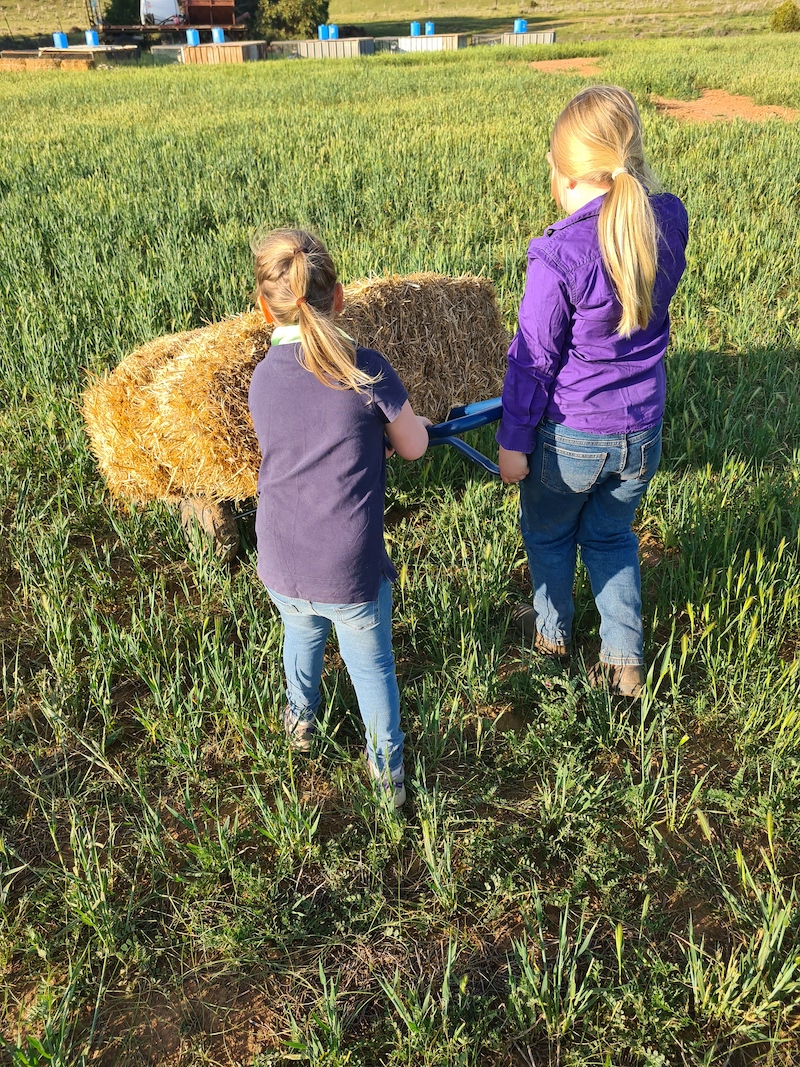
John and Hannah have started with pasture-raised chickens and plan to next move into regenerative cropping.
Having only moved to South Australian in 2021 and started their business in 2022, the family has already become a regular supplier to Adelaide’s top chefs.
Their customers include Arkhe, Hentley Farm, Mount Lofty Estate, Mount Bera Vineyards, Kingsford Estate, Otherness and Fino Seppeltsfield.
“We have had to do a lot of work to get our name out there, but the Barossa Farmers Market has been really encouraging,” says Hannah.
“There’s a lot of transparency in the way that we farm. If you know your farmer, then you know what is ending up on your plate.
“Conscientious buyers really will seek you out because it’s important to them, and it’s important to us; that’s why we do it. If we can connect that kind of food to people who want it, that’s what we’re here for.”
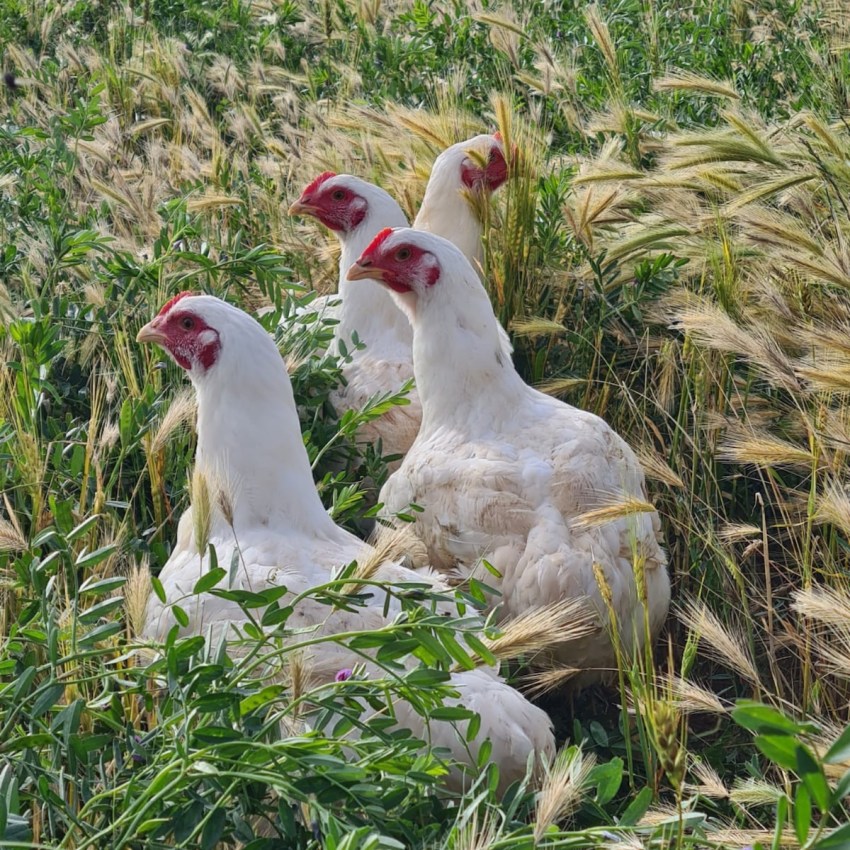
Hannah and John also lease a butcher shop at Eudunda. It serves as a processing facility where Hannah prepares meat for market and is open on Fridays as a pick-up location for pre-orders.
Moving some 3000 kilometres across the country to restart their lives in a small community was a gamble, but has so far paid off, with a lot of hard work.
“It was full-on to just pick up and move to another state but the community both in Robertstown and Eudunda has been incredible,” says Hannah.
“We’ve felt at home since the first weekend we’ve been here. It feels like we’ve been here 100 years.”



